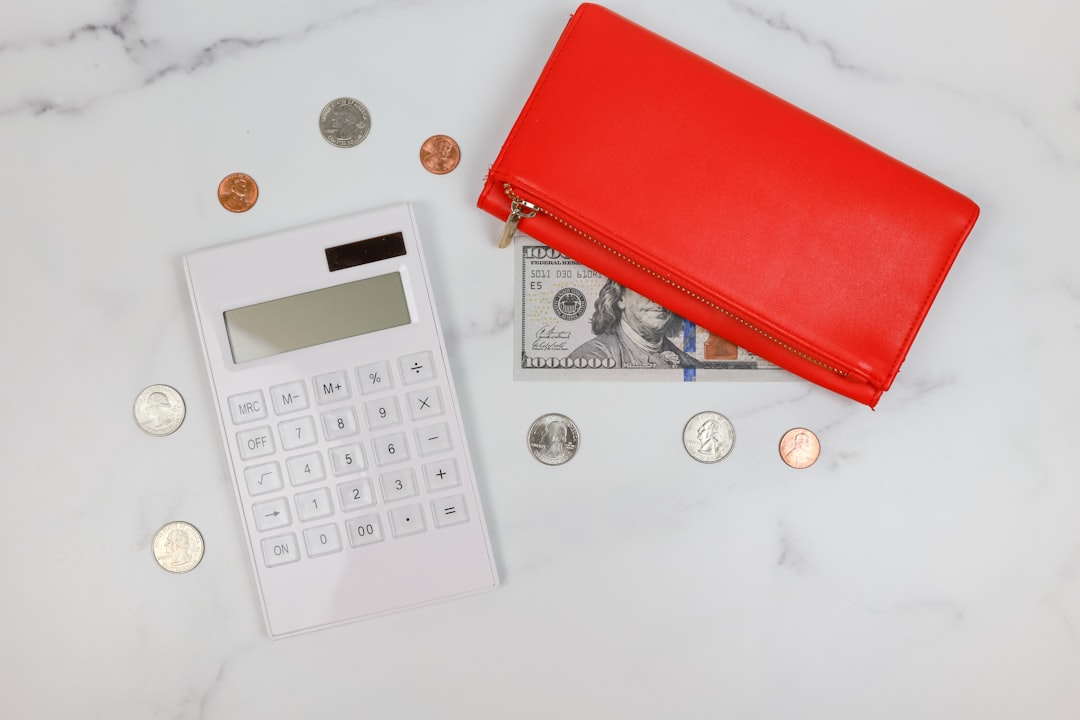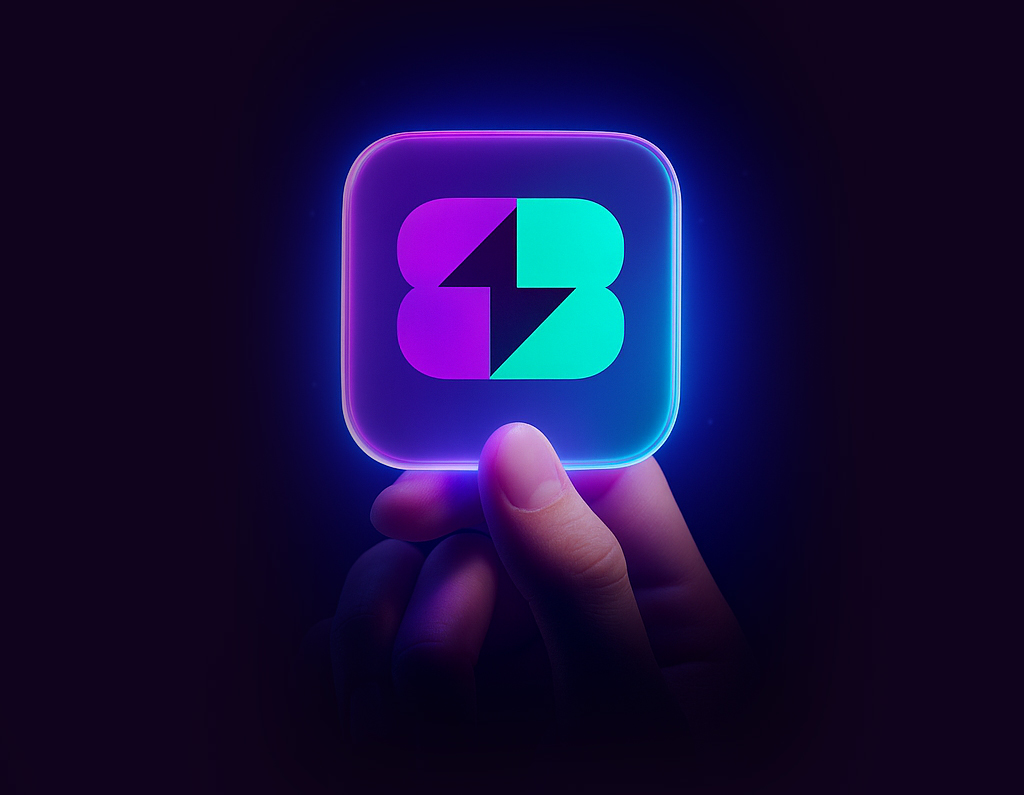
Financial Anxiety Every Day: Why 62% of Gen Z Can't Sleep (And What Actually Helps)

It's 3am and you're wide awake, mentally calculating whether you can afford that subscription renewal. Your heart's racing. There's that pit in your stomach—the same one that shows up every time you check your bank account. Before making any purchase decision, even buying a coffee, you feel that familiar wave of anxiety washing over you.
If this sounds familiar, you're not alone. And here's the thing: it's not your fault.
A staggering 62% of Gen Z report being stressed about money more than 3 days per week. Even more alarming? 20% experience financial anxiety EVERY SINGLE DAY. Nearly 40% of Gen Z feel depressed and anxious about finances every week. This isn't just "feeling stressed"—this is a full-blown crisis affecting your sleep, your health, and your quality of life.
The Crisis No One's Talking About: The Financial Anxiety Epidemic

Let's talk about the elephant in the room. The numbers are genuinely shocking, and they paint a picture of a generation drowning in financial stress.
Only 31% of Gen Z feel financially secure. Read that again. Less than a third of an entire generation feels okay about their money situation. Meanwhile, 47% report excessive anxiety or worry that's difficult to control. The average financial anxiety level? 3.6 out of 5, where 5 is "extremely stressed." That's basically living in a constant state of financial panic.
Here's where it gets even more real: 40% of Gen Z experience heightened anxiety after paying basic expenses like rent. You know, the stuff you need to survive. Almost 60% say their basic needs aren't being met. This isn't about wanting the latest iPhone—this is about fundamental security.
Beyond Your Bank Account
The ripple effects are everywhere. 40% of Americans say financial worry has caused actual physical illness. For Gen Z specifically? That number jumps to 56%. Your money stress is literally making you sick.
But it doesn't stop there:
- 74% of Gen Z are missing social events due to financial stress (there goes your social life)
- 64% noting declines in workplace performance (your job is suffering)
- 39% of Gen Z describe their finances as "weak" compared to 32% of Boomers
This isn't just "feeling stressed." This is a pervasive mental and physical health crisis affecting literally every aspect of your life.
The Neuroscience of Financial Stress: Why Your Brain Can't "Just Relax"

Here's where things get really interesting (and honestly, kind of validating). When someone tells you to "just budget better" or "stop worrying so much," they're fighting against literal brain chemistry. Your brain isn't broken—it's overwhelmed.
The Cortisol-Dopamine Death Spiral
Let's talk about what's actually happening in your head when you're stressed about money. Financial stress triggers cortisol release—that's your "stress hormone." Elevated cortisol makes you MORE risk-averse, creating decision paralysis. You literally freeze up when you need to make choices.
But here's the cruel irony: chronic cortisol doesn't just make you feel bad. It impairs your working memory, reduces your attention span, and limits your behavioral flexibility. In other words, stress makes you WORSE at making the financial decisions you desperately need to make.
Then there's the dopamine depletion cycle. Constant stress reduces your serotonin and dopamine levels—the neurotransmitters critical for motivation and decision-making. Lower dopamine leads to depression, difficulty making decisions, and (plot twist) makes you prone to addictions and impulse behavior.
See the vicious cycle? Stress leads to poor decisions, which leads to more stress, which leads to even worse decisions. It's a death spiral, and willpower alone won't save you.
Decision Fatigue Is Real (And It's Killing Your Financial Health)
Every financial decision, even small ones, drains your mental energy. This is called cognitive load, and it's like having a battery that depletes throughout the day.
"Can I afford this coffee?" = cognitive load. "Should I buy the name brand or generic?" = cognitive load. "Is this subscription still worth it?" = cognitive load.
Financial worries are basically "persistent internal interruptions" causing constant mental fatigue. By the end of the day, your decision-making capacity is shot. This is why you make your worst financial choices when you're tired, stressed, or emotional.
Your prefrontal cortex—the part of your brain responsible for rational decisions—gets completely overwhelmed. Stress impairs virtually every cognitive skill: attention, memory, problem-solving, critical thinking. Research shows the pain of losing money is MORE powerful than the pleasure of gaining it (loss aversion), creating hyper-vigilance around money that paradoxically impairs your judgment.
The takeaway: Your brain isn't broken—it's overwhelmed. The solution isn't more willpower; it's less cognitive load.
Why Traditional Advice Fails (And Makes Things Worse)

Let's be real about why the "just budget better" crowd doesn't get it. Their advice isn't just unhelpful—it's actively harmful because it ignores how your brain actually works.
"Just Make a Budget"
Budgets require sustained cognitive effort and perfect adherence. When you're already experiencing decision fatigue, creating and maintaining a detailed budget adds MORE load to your already-maxed-out brain. It doesn't address the emotional or neurological component of your financial anxiety. It focuses on restriction rather than support, creating shame when you inevitably "fail."
"Stop Checking Your Account"
Okay, there's actually some research showing people who check their accounts less frequently do better financially. But here's the problem: ignoring the situation creates a different kind of anxiety—the anxiety of the unknown. The real issue isn't checking your account; it's checking without any decision support, which just increases stress without providing solutions.
"You Need More Discipline"
This one's especially frustrating because it blames you for a systemic and neurological issue. It completely ignores how stress impairs the very executive function needed for "discipline." All it does is create a shame cycle that worsens your anxiety. You don't need more discipline—you need better systems.
"Just Track Your Spending"
Tracking is retrospective—it doesn't help with in-the-moment decisions. Seeing what you already spent can actually increase anxiety without providing solutions for future choices. Plus, it doesn't address the dopamine-driven impulse purchases that happen when your brain is overwhelmed.
Bottom line: These approaches ignore the neuroscience. You need support systems, not shame.
What Actually Works: Evidence-Based Solutions

Alright, enough doom and gloom. Let's talk about what actually works when you understand the neuroscience behind financial anxiety.
Strategy 1: Talk About Money (Even When It's Uncomfortable)
Cornell University did fascinating research on this: people who regularly discuss finances experience LESS anxiety over time. The more you talk about money, the better you feel. But here's the crucial insight—talking about things WITHIN your control reduces anxiety more than discussing external factors.
Breaking the money silence reduces shame and provides perspective. You realize you're not alone (seriously, 62% of your generation is going through this). Find a trusted friend or partner to discuss financial decisions with. Join online communities focused on financial wellness (not just "get rich quick" schemes). Focus conversations on specific decisions you can actually control.
Strategy 2: Automate to Eliminate (Decision Points)
Remember how every decision drains your mental battery? Automation is like having someone else make those small decisions for you, preserving your energy for the big choices that really matter.
Set up automatic savings transfers. Automate bill payments. Use apps that handle recurring decisions for you. Every automated decision equals mental energy saved.
Research backs this up: financial apps that reduce cognitive load show measurable stress reduction. Decision fatigue is real—removing small decisions preserves capacity for important ones.
Strategy 3: Create Decision-Support Systems (Not Just Tracking)
This is the critical shift. Instead of tracking what you already spent (creating anxiety), get support BEFORE purchasing. Decision support tools interrupt the dopamine-driven impulse cycle, creating what behavioral economists call "productive friction"—a pause that allows your rational thinking to catch up with your emotional impulses.
This looks like AI analysis that evaluates purchases against your actual financial health. Tools that ask "How will this affect your goals?" before you buy. Systems that provide objective perspective when cortisol and dopamine are hijacking your judgment.
Strategy 4: Focus on Controllable Actions
Combat helplessness with agency. The antidote to anxiety is often action—but it has to be action within your control.
The neuroscience backing: taking action reduces cortisol. Small wins increase dopamine in healthy ways. This builds self-efficacy and reduces learned helplessness. You're training your brain that you CAN make good decisions.
Strategy 5: Mindfulness for Money Moments
We're not talking traditional meditation here (though that helps too). This is about developing awareness of your emotional spending triggers and practicing the "pause" before purchase.
Try deep breathing exercises during financial anxiety moments. Work on separating the feeling of anxiety from the action of spending. Research shows mindfulness practices reduce financial anxiety by creating space between trigger and response. It helps you identify when you're making decisions from stress versus rational evaluation.
The BuyBye Solution: AI-Powered Decision Support
Here's where everything we've discussed comes together into something practical you can actually use.
BuyBye addresses the neuroscience of financial anxiety by tackling the root causes—not just the symptoms.
Reduces Cognitive Load
BuyBye offloads the mental work of purchase evaluation to AI. No more "can I afford this?" spiraling at 2am. Instead of your brain doing all the heavy lifting, you get clear, objective analysis. It's like having a financially-savvy friend who remembers all your obligations and goals when your brain is too overwhelmed to think straight.
Interrupts the Dopamine Loop
Remember that cortisol-dopamine death spiral we talked about? BuyBye creates a productive pause between impulse and purchase. It provides rational perspective when your brain is in "must buy now" mode. Instead of retailer algorithms designed to maximize your spending, you get analysis based on YOUR financial reality.
Focuses on Control
You control the parameters—income, savings goals, existing obligations. BuyBye gives you agency over decisions instead of leaving you feeling helpless. It talks about things WITHIN your control (this specific purchase, right now) rather than overwhelming external factors you can't change.
Provides Decision Support, Not Judgment
This isn't about restriction or shame. It's about having a tool that works FOR you when your brain is working AGAINST you. Think of it as decision support that helps you make confident choices, not a judgmental voice telling you what you're doing wrong.
Real-world application:
- Before buying that "limited time offer": Get instant analysis of how it impacts your financial health
- When considering Buy Now Pay Later: See the full picture of your existing obligations
- For subscription decisions: Evaluate true cost against your budget reality
Small Steps, Big Impact: Your Action Plan
Let's make this concrete. Here's what you can do right now, this week, this month.
Immediate Actions (This Week)
Longer-Term Changes (This Month)
System Building:
- Automate one recurring financial decision
- Build a decision-support routine for purchases over $50
- Set up one small, consistent savings action
Behavior Shifts:
- Check your accounts LESS frequently but with more intention
- Focus on one financial improvement at a time
- Celebrate small wins to build healthy dopamine patterns
Remember These Truths
You're not broken—your brain is overwhelmed. The solution isn't more discipline—it's better systems. Progress over perfection. Every supported decision reduces overall anxiety.
You Deserve Financial Peace

Let's bring this home. If you're part of that 62% of Gen Z experiencing financial stress regularly, you're carrying a heavy weight. Financial anxiety is REAL, and it's not a personal failure. It's a neuroscience problem that requires a neuroscience solution.
But here's the hope: this is solvable with the right approach. Research shows that talking about finances, using decision support tools, and focusing on controllable actions actually WORKS. You don't have to white-knuckle your way through every purchase decision, fighting against your own brain chemistry.
Financial peace isn't about having tons of money—it's about having clarity, support, and confidence in your decisions. It's about reducing the cognitive load that's keeping you up at 3am. It's about interrupting the cortisol-dopamine spiral before it takes over.
Try BuyBye for your next purchase decision. Experience what it feels like to have AI-powered support instead of anxiety-driven guessing. Join thousands of others reducing financial stress one decision at a time.
Your 3am money anxiety doesn't have to be your reality. Better decisions, less stress, starting now.


